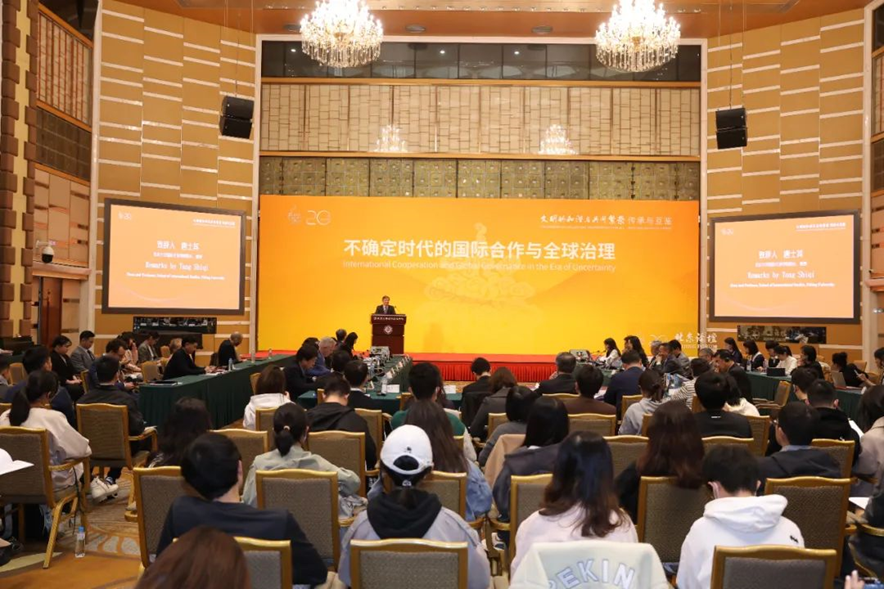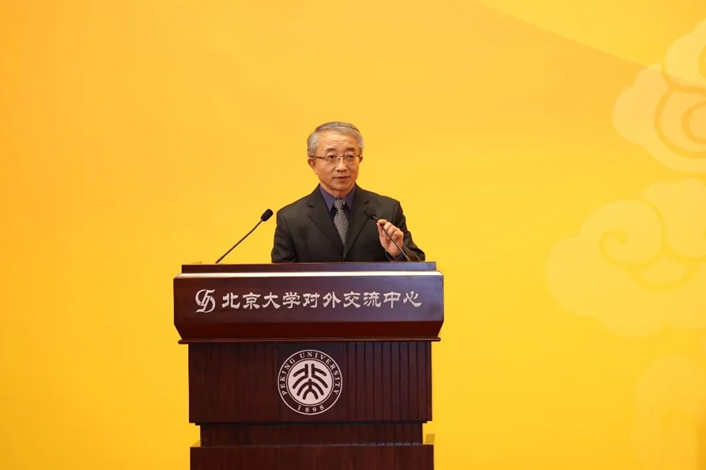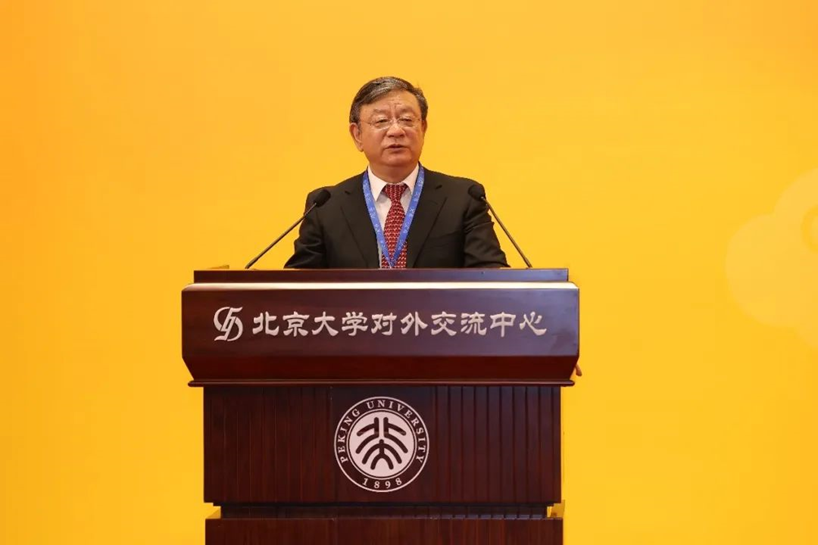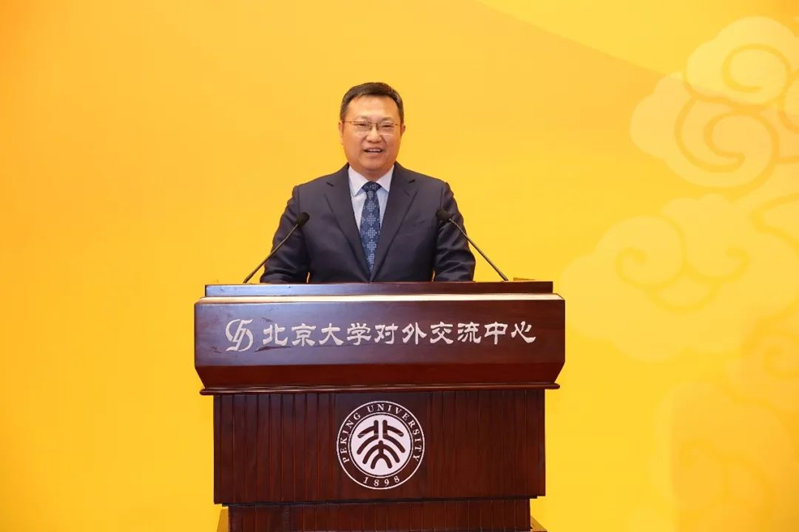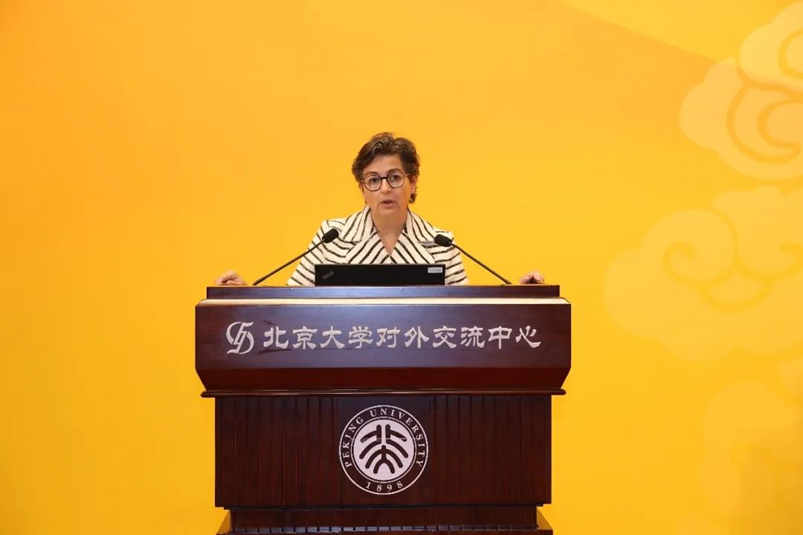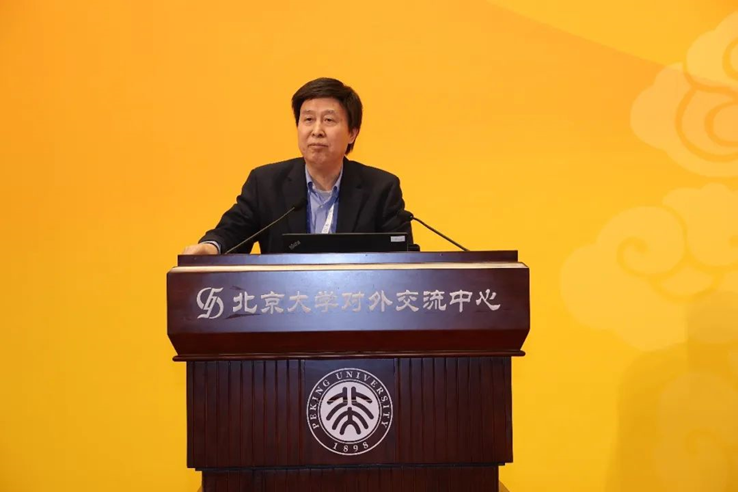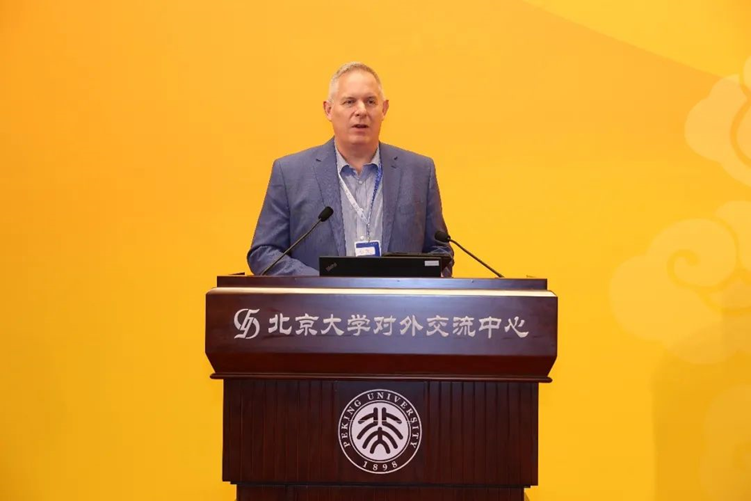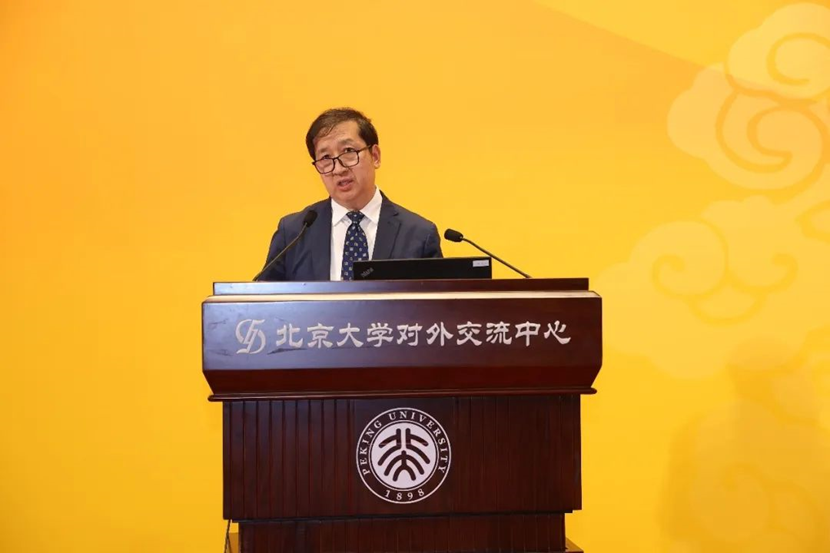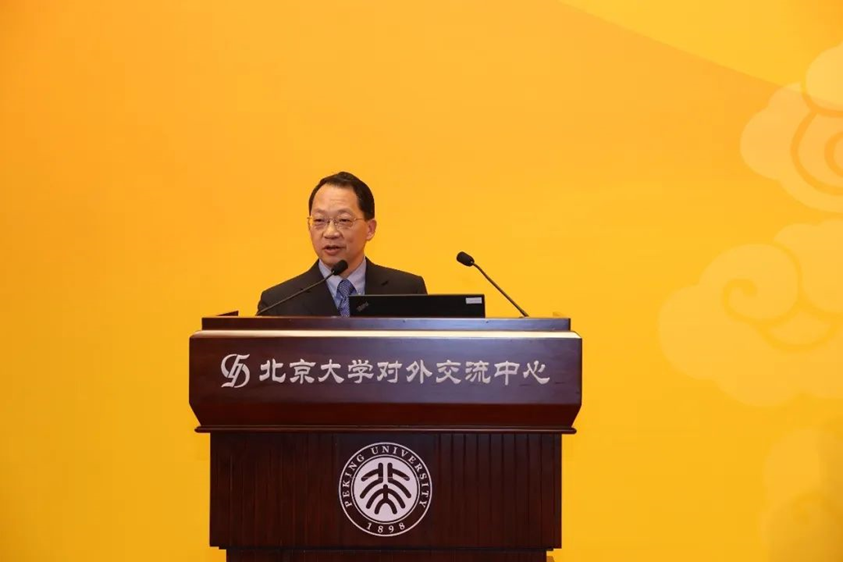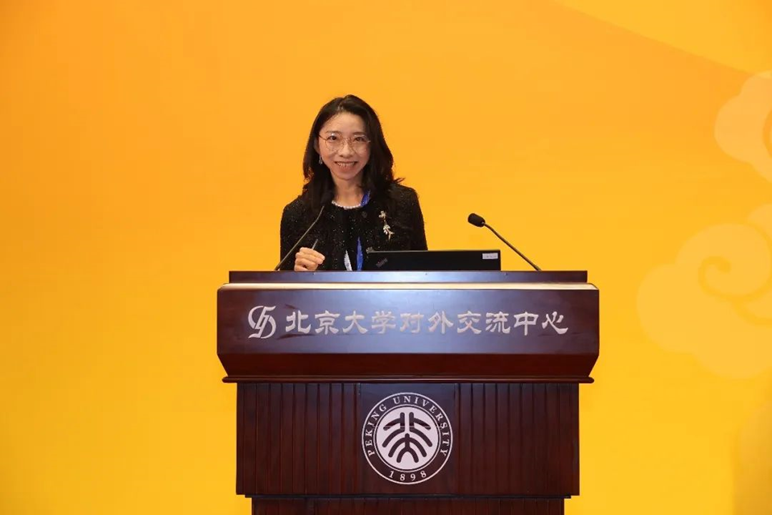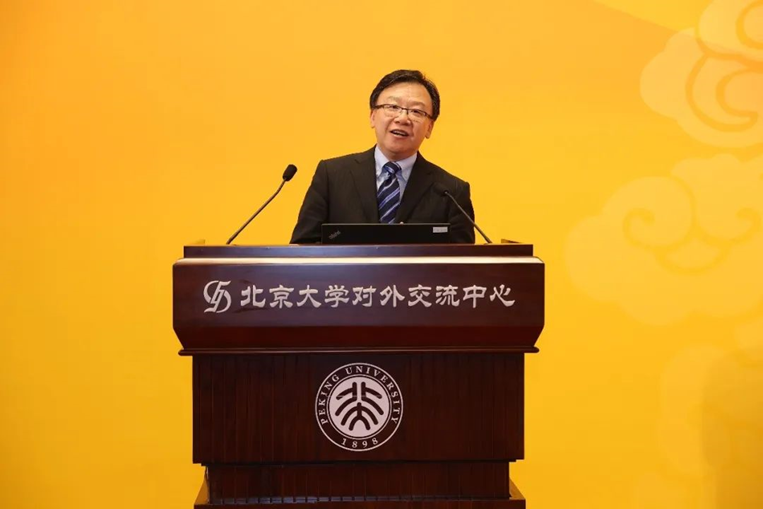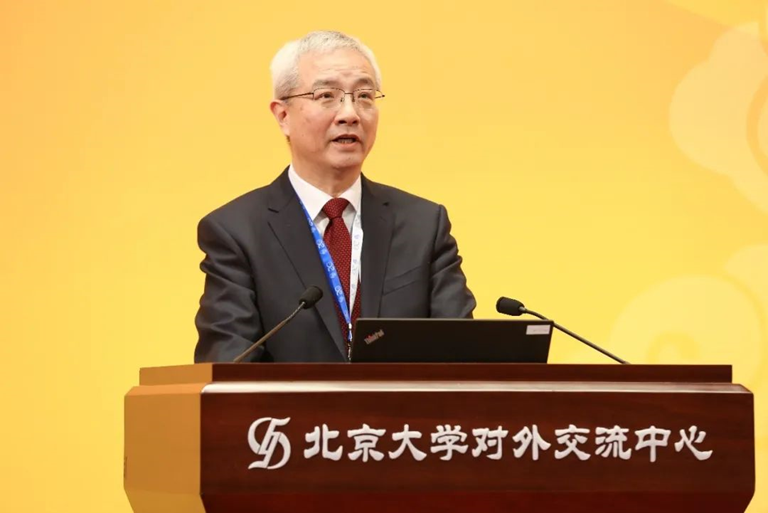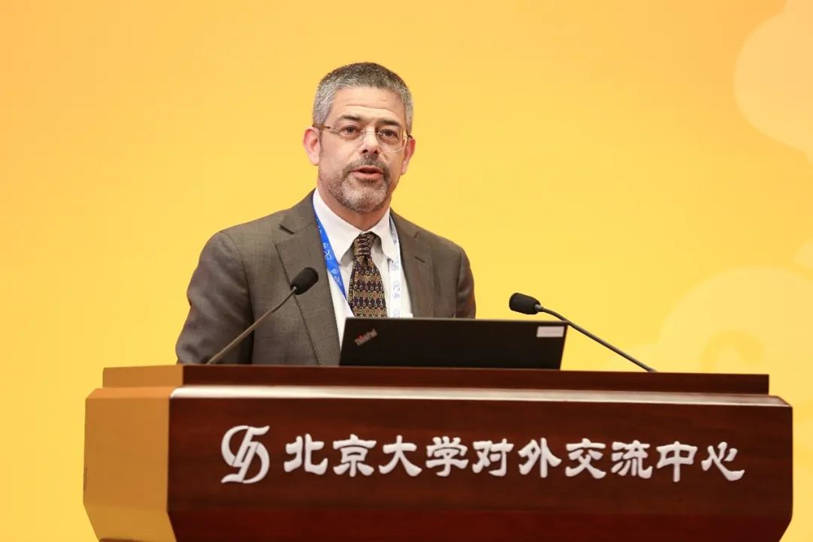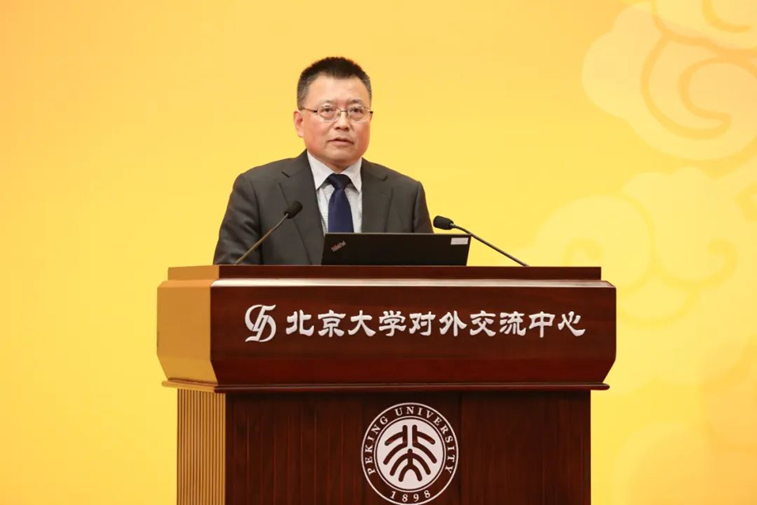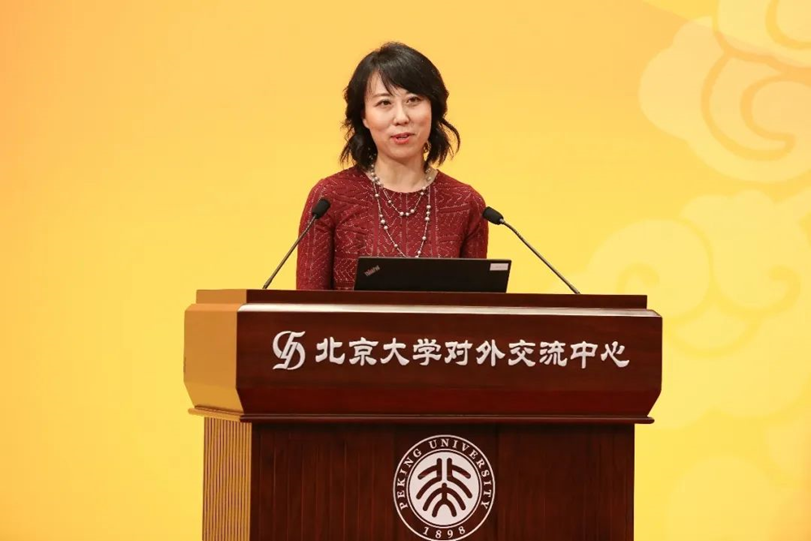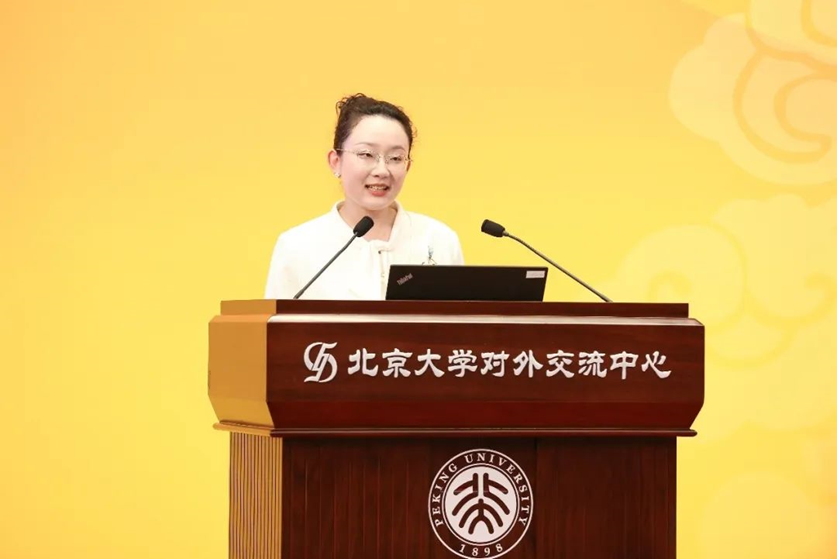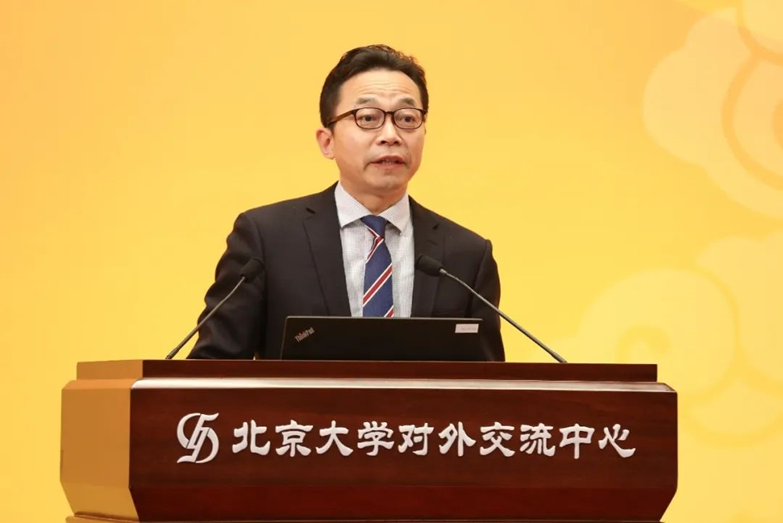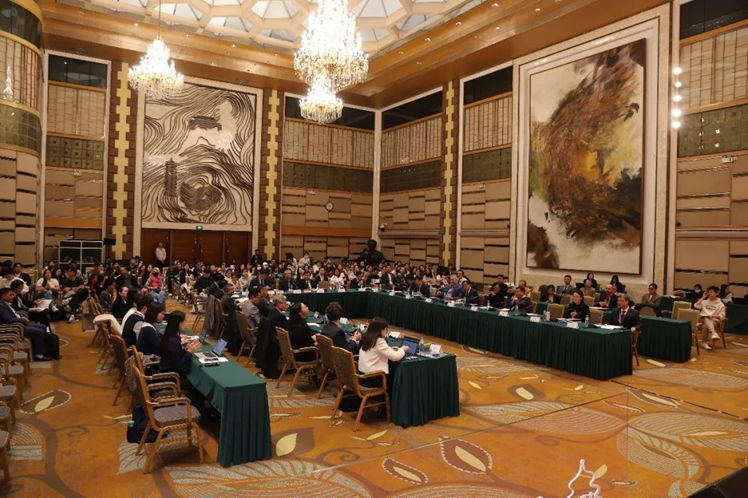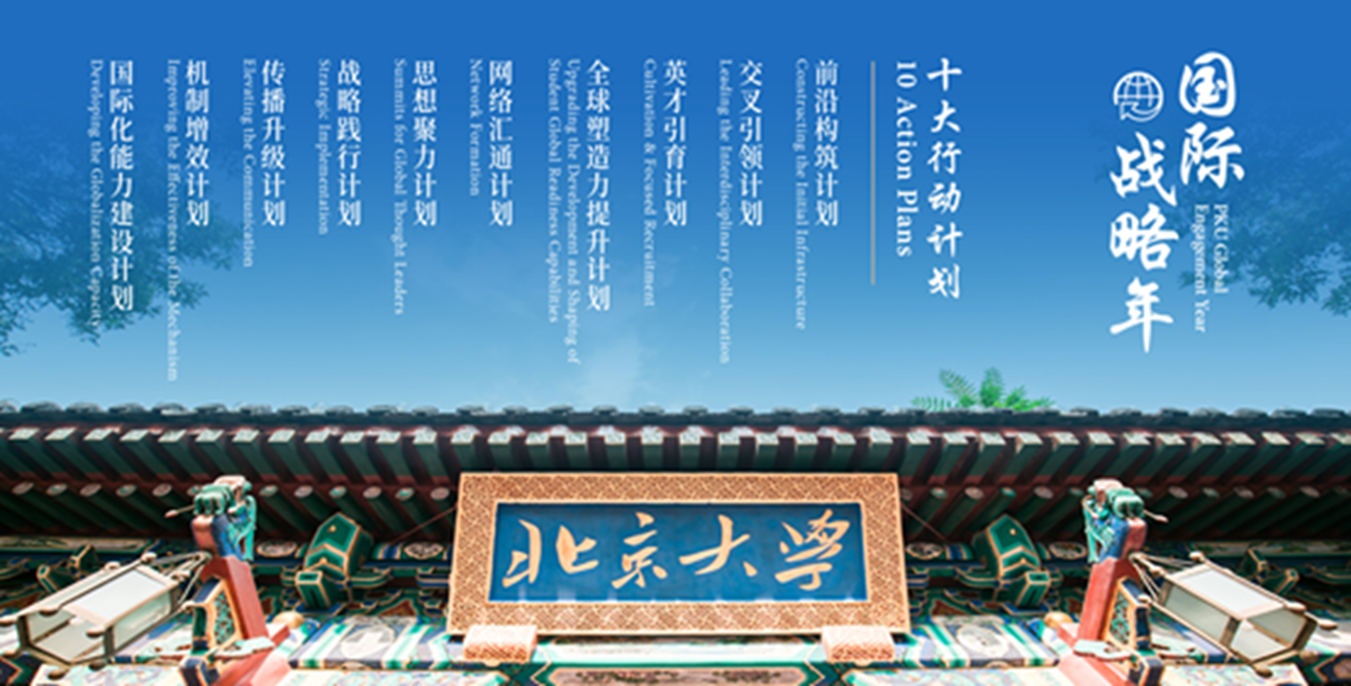Beijing Forum 2023 | Fostering trust in an era of uncertainty
Nov 13, 2023
The era we live in today is one of deep-rooted uncertainty, driven by globalization, technological revolution, environmental risks, and geopolitical instability. How can the global community rebuild trust and resilience in face of interconnected and multifaceted challenges? How can we better adapt global governance mechanisms to manage future crises and uncertainties? Experts and scholars discussed these questions at a sub-forum at this year’s Beijing Forum, PKU News journalist reports.
Peking University, November 11, 2023: As part of the 20th Beijing Forum, Peking University School of International Studies (PKUSIS) held a sub-forum under the theme of “International Cooperation and Global Governance in the Era of Uncertainty” from Nov. 4-5 at the Sunlight Hall of Yingjie Exchange Center in PKU. The sub-forum gathered insights and expertise from world-renowned scholars on the problem of uncertainty in the global political landscape. The opening ceremony was chaired by Zhang Haibin, vice dean and professor at PKUSIS.
An Yufeng
An Yufeng, vice chairman of the University Affairs Committee of PKU, made an opening speech on behalf of Peking University. With the rise of uncertainty in international affairs, An said, “immediate action needs to be taken to foster mutual trust and international cooperation.” He also expressed hope that the forum would be a start to a new chapter in PKU's international academic collaboration efforts.
Tang Shiqi
Tang Shiqi, dean of PKUSIS, in his speech emphasized the need to “place the common security of humanity as the starting point of all human activities.” He advocated for an inclusive global governance mechanism that “transcends nationalism and unilateralism.”
Pan Jiang
Pan Jiang, deputy director general at the Department of International Cooperation of the National Development and Reform Commission, said that “black swan” and “gray rhino” (highly probable yet neglected threat) events “are signs of prevailing uncertainty.” To counteract this, the international community needs to cooperate and strive towards creating a shared destiny for humanity.
After the opening ceremony, the forum opened with the first panel discussion surrounding the theme “Globalization under Deep Uncertainty: Regaining Confidence and Rebuilding Trust.” Subsequent panel discussions addressed challenges and opportunities for international cooperation, policymaking, and crisis management.
The Problem: Globalization under deep uncertainty
Arancha Gonzalez, dean of the School of International Affairs at the Paris Institute of Political Studies, pointed out existing gaps in the international system that contributed to the uncertainty, such as an imbalance in international institutions and the use of confrontational narratives that highlight differences rather than commonalities.
The former Assistant-Secretary-General of the United Nations asserted the need to modernize the universal set of principles with goals like climate security and international accountability, as well as the need to build trust at a regional level.
Yang Guangbin
Yang Guangbin, dean of the School of International Studies at the Renmin University of China, proposed the Chinese perspective of “Tianxia,” a philosophy that views the world as without geographical borders but follows a naturally developed order when analyzing global politics.
Phillippe Rheault
In the words of Phillippe Rheault, director of the China Institute at the University of Alberta, building trust internally renders actors more effective and confident on the international stage. Reducing domestic economic inequality, in particular, “is a common goal that most countries need to strive towards,” he maintained.
Jia Lieying
Jia Lieying, dean of the School of International Relations at Beijing Language and Culture University, pointed out the predicament faced by the United Nations when major powers fail to coordinate. He called for a restructuring of the United Nations Security Council, enhanced cooperation between functional international organizations as well as non-governmental organizations.
Gao Zugui
Gao Zugui, president of the Institute for International Strategic Studies at the Party School of the Central Committee of CPC, pointed out that increased global competition for technological advantages represented a major source of uncertainty. He asserted that countries needed to focus on cooperation and mutual respect.
“Risks have low external agency and a lost sense of control, creating anxiety and thus eroding confidence, leading to an enduring sense of insecurity,” Pang Xun, a professor at PKUSIS and director of PKU Analysis Lab for Global Risk, said in her speech, which provided a detailed analysis into the roots of risks and threats to international relations. She proposed capacity-building as a solution, and introduced the four pillars of capacity—robustness, resilience, flexibility, and adaptability.
Scholars at the forum also explored possible solutions for rebuilding trust on domestic, regional, and international levels in further panel discussions that stretched across both days.
The Solution: Strengthening international organizations, creating multi-dimensional mechanisms
Ren Minghui
Public health is a realm that faces risks and uncertainty, and international organizations “need to do more,” said Ren Minghui, director of the PKU Institute for Global Health. The former Assistant Director-General of WHO urged for new international regulations, greater investment platforms, and restructuring of the global public health management system.
Yang Mingjie
“Erosion of trust is the root of many ongoing international conflicts,” said Yang Mingjie, president of China Institute of Contemporary International Relations. He called for nations to prioritize the needs of people in their strategic analyses when managing crises.
Benjamin Goldsmith
Australian National University professor Benjamin Goldsmith spoke on the effect of democratic backsliding on foreign public opinion. According to his research, democratic backsliding could significantly reduce a nation’s soft power and impact its international status.
Yu Tiejun
Yu Tiejun, president of the Institute of International and Strategic Studies and director of the Department of National Security Studies at PKUSIS, called for scholars to work on the application of political theories in real life, to help reduce uncertainty in the world.
Yu analyzed solutions to non-traditional security threats using China-U.S. relations as an example. On a macro level, China and the United States can cooperate in low-political areas to establish an effective coordination and decision-making mechanism. On a micro level, both nations need to better implement global security initiatives, regarding major power relations, hotspot regional conflicts, and more.
Wang Jia
Wang Jia, associate director of the China Institute at the University of Alberta, proposed four crisis management tips for domestic decision-makers based on her study on Canada and the United States. Firstly, establish a coordination mechanism between internal departments; secondly, identify and respond to crises quickly; thirdly, prioritize public opinion; and finally, seek common ground while respecting differences in order to foster mutual understanding.
Xu Qinyi
Xu Qinyi, assistant professor at PKUSIS, discussed the importance of climate governance in building resilience against climate change, which is quickly becoming the biggest security threat globally. In an era of uncertainty, nations and international organizations must continuously evaluate the effectiveness of mechanisms to deal with climate change, she emphasized.
At the end of the final panel discussion, Chu Xiaobo, Party secretary and professor of PKUSIS, made his closing remarks, in which he pointed out that over 20 scholars at the sub-forum contributed their insights into the current situation of uncertainty, demonstrating humanistic care and a strong sense of academic responsibility towards global affairs. He also commented that young scholars and students at the forum represented the inheritance of academic vigor and passion.
This article was featured in the special coverage of PKU's Global Engagement Year.
Reported and written by: Wu Jiayun
Edited by: Dennis Meng
Photos by: Beijing Forum
